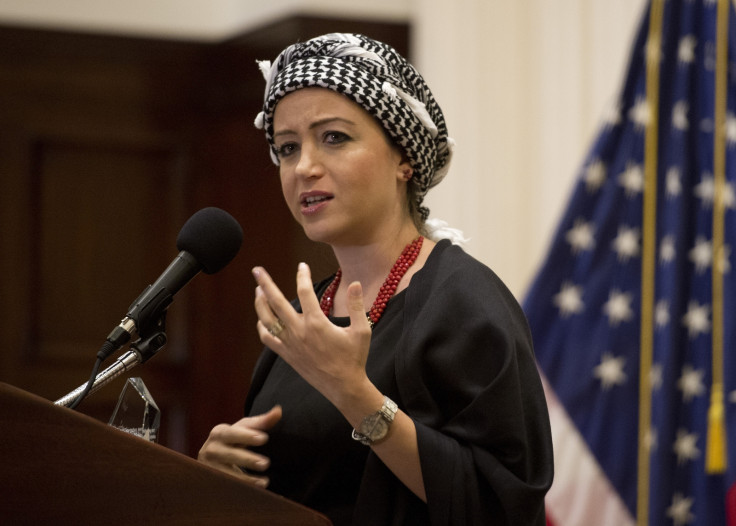Syrian activist faces asylum decision after UK confiscates passport at behest of Assad regime
Zaina Erhaim faces choice between returning to Turkey or seeking asylum after the UK confiscated her passport at Assad regime's request.

Award winning Syrian journalist Zaina Erhaim, whose work has brought the plight of her countrymen and women to the world, now faces the difficult decision of whether to apply for asylum after British authorities confiscated her passport as she arrived at Heathrow.
Plunged into uncertainty since UK customs seized her passport on 22 September, Erhaim said the decision by British government has played into the hands of the Assad regime. The passport was reported stolen by the government in Damascus and was due to be returned to Syria under Home Office regulations.
Erhaim could herself have faced deportation and imprisonment in a regime jail, where human rights abuses including torture and summary execution have been well documented.
The bogus allegation of theft is seen by the activist – and by press freedom groups supporting her – as a thinly veiled pretext to stop her from travelling and ultimately force her into silence. Although she has a second valid passport (but minus spare pages) – which will allow her to return to Turkey – she believes if she does so, this will be her final trip abroad.
"First I believe this is going to be the last trip abroad I am making. This is not as scary as not being able to go back to Turkey because all of my family and the father of my baby is there.
"He won't get a British visa for sure so we won't be able to see each other maybe for a year or two perhaps if I don't go back into Turkey," Erhaim said at a press conference hosted by the Council for British Arab Understanding (CAABU).
The decision to apply for asylum either in an EU nation or in Turkey is not one Erhaim is willing to make at the moment. However, should the situation deteriorate further she might not be left with any options. "Maybe if I was threatened, maybe if I survived an assassination attempt, I don't know for now I would rather be stuck in Turkey than here and I will try to go back," she told IBTimes UK.
The groups lobbying on Erhaim's behalf, CAABU, Reporters Without Borders, the Institute of War and Peace Reporting and the Frontline Club, have been at best baffled by British authorities' response and have said the tactic of reporting passports stolen could be employed by other repressive regimes around the world.
"Zaina has been allowed into Britain, there is no dispute of identity, they have accepted that Zaina is who she is, so it is an extraordinary sort of situation that then they are also at the same time as accepting her passport on the one hand they are also buying into the narrative that the other one is stolen," Chris Doyle the director of CAABU said.
Erhaim's case is being wrangled over by both the Home and Foreign offices but to all intents and purposes the Home Office appears to be treating the case as a superficially technical matter. In a statement to Reporters Without Border, the Home Office has said: "Our first priority is the security of our borders and it would be irresponsible to ignore warnings about stolen passports. The British government has no direct contact with the Assad regime due to the atrocities it has committed against the Syrian people."
However, there has been no agreement to a meeting with Erhaim from the government department and she herself has received no official contact from UK authorities.
Erhaim has said her concern is not ultimately with herself but for others who might fall victim to the same ploy. To her knowledge, at least three other Syrian activists have had their passports reported stolen by the Assad regime.
"If this happened to another Syrian who doesn't have another passport and isn't supported... what would happen? If they were following the rules they should be sent to Damascus. If you have someone who stole another's passport you should deport him back to his country, what would happen then?" she asked.
© Copyright IBTimes 2024. All rights reserved.









